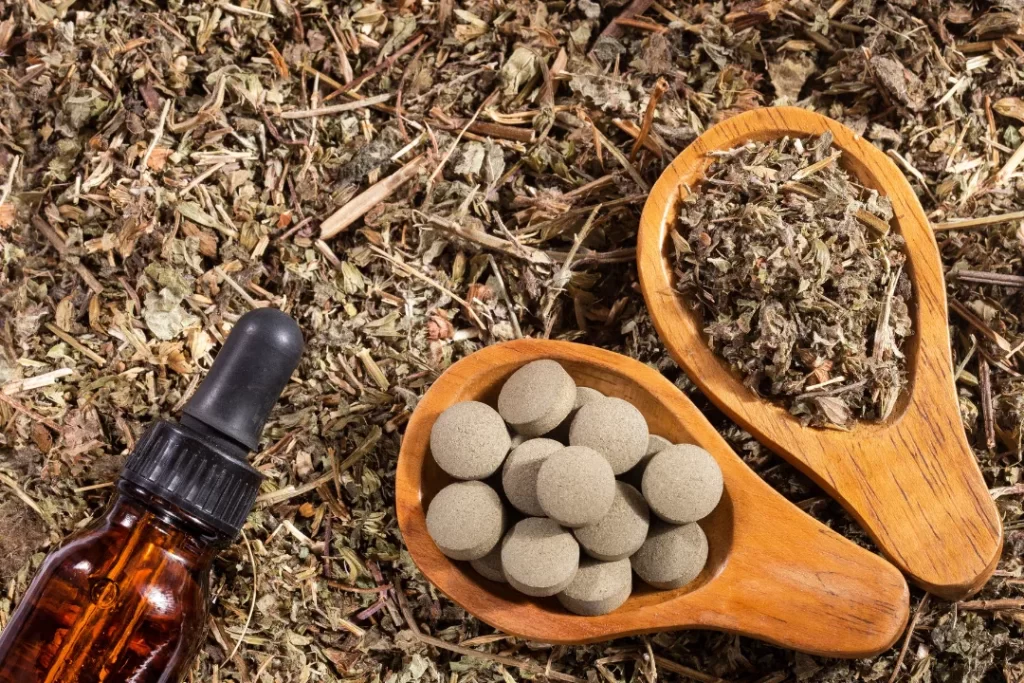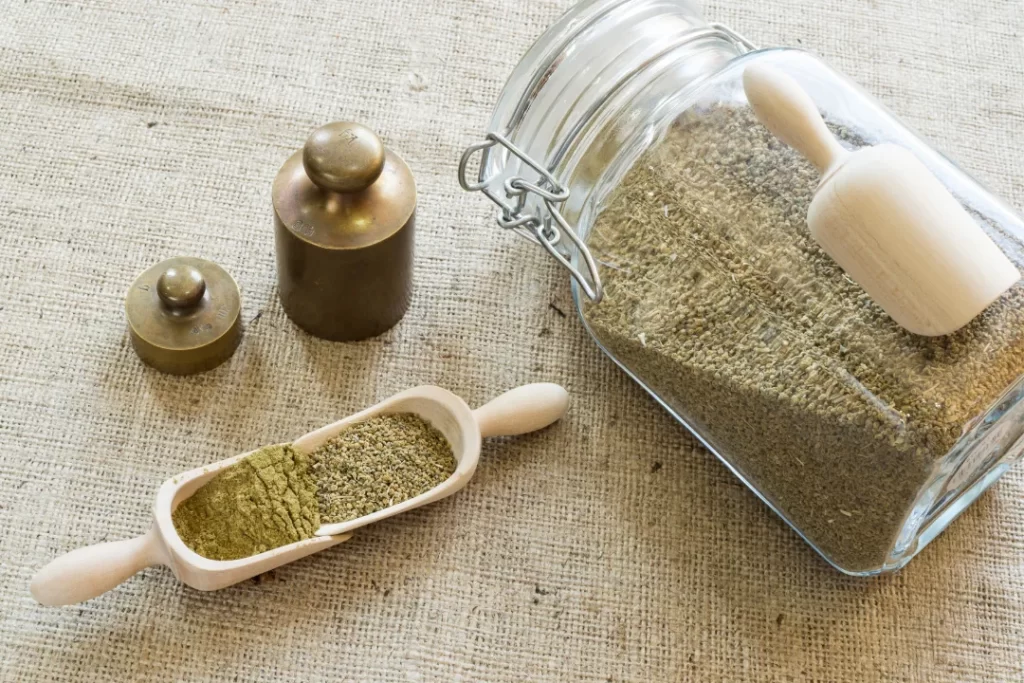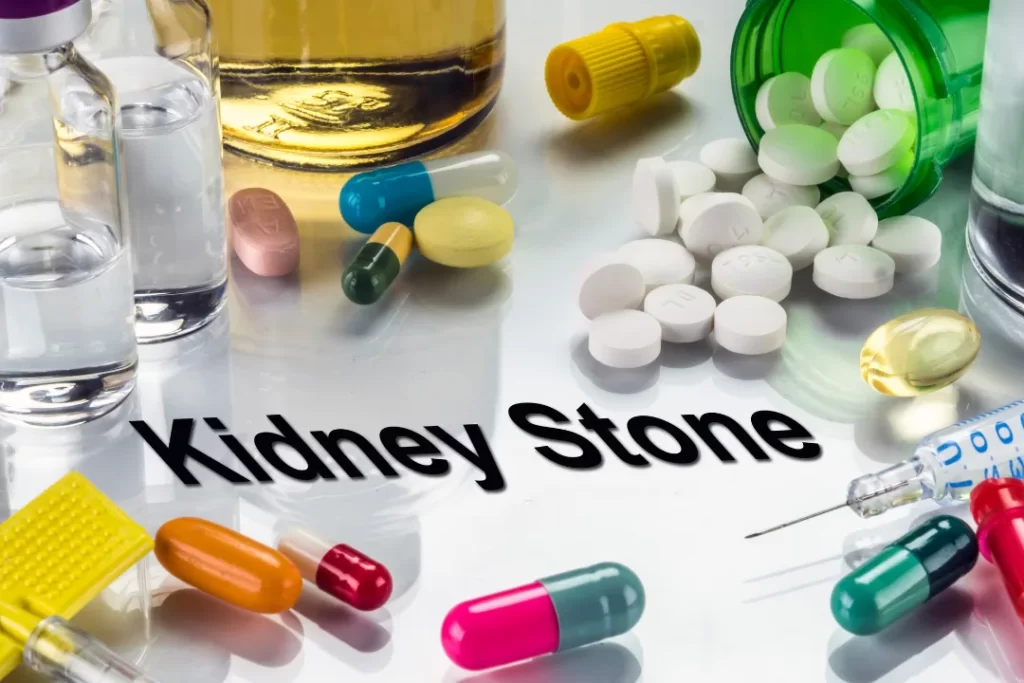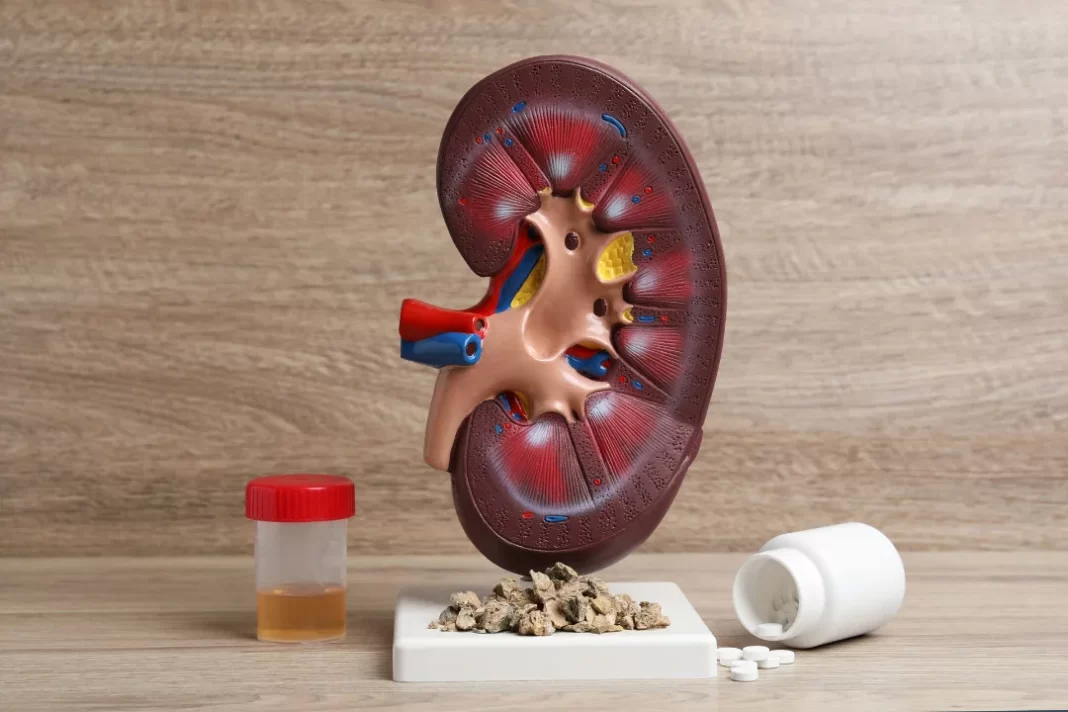Are stress and kidney stones related? Here’s what you need to know to prevent stress-induced kidney stones (or treat them if they develop despite your efforts) without powerful prescription medication.
Every year more than half a million people go to the emergency room suffering from kidney stones. The causes of kidney stones are varied, but some experts believe stress could be a factor. Studies have shown some correlation between stress and kidney stones, especially when stress leads to unhealthy eating. Stress can affect physical and emotional well-being, and factors that stem from stress, like poor diet and dehydration, can create circumstances that lead to kidney stones.
You May Also Like:
Sea Moss Benefits For Women: 7 Things Women Should Know
Stress and Kidney Stones is an original (HerHealthWatch) article.
The formation of kidney stones
Kidney stones are hard deposits that form in the kidney, and several factors increase the chances of developing them. Crystal-forming substances, like oxalate, calcium, and uric acid, form in the kidneys. If the body does not produce enough urine to flush them out, they crystalize, creating stones. The most common type of kidney stone is formed by a combination of calcium and oxalate. Oxalate occurs in certain fruits, vegetables, nuts, and chocolate. It is also found in small amounts in the liver.

Types of kidney stones and their causes
There are different types of kidney stones aside from calcium oxalate:
- struvite stones – form in response to a urinary tract infection,
- uric acid stones – formed from too much protein and too little fluid
- cystine stones – from the hereditary disorder called cystinuria, where the kidneys excrete too much amino acid.
Stress and kidney stones
Many factors can lead to kidney stones, including a family history of kidney stones, diets high in protein, sodium, and sugar, obesity, digestive diseases, surgeries like gastric bypass surgery, and certain supplements and medications. Dehydration is also a factor.
Stress can be an indirect factor in the development of kidney stones. Events like losing your job, moving house, and financial trouble, as well as positive events like having a baby can become stressors.
Stress is a normal part of life and can be a positive thing. However, stress can affect your performance at work, home life, and relationships. Emotional states like fear and anxiety can fuel stress.
A recent report stated that over 70% of Americans had experienced physical and emotional stress in the past month. Stress can alter the chemicals and hormones in your body that impact your health. It can even lead to physical responses like an elevated heart rate, sweating, elevated blood pressure, heavy breath, and tense muscles. These effects are usually short-term, but prolonged exposure to stress can be detrimental to your health.
These physical responses can lead to health problems like heart disease, weight gain, irritability, difficulty sleeping, headaches, fatigue, not eating or drinking properly, and depression. Poor diet, in particular, can create the basis for developing kidney stones. A poor diet can include too much salt, sugar, and alcohol and too little water, all of which can cause kidney stones to form.

A 1997 study at the University of Medicine and Dentistry in New Jersey, which looked at stress and kidney stones, found a group of patients with kidney stones experienced 1,428 stressful events in the two years before they developed the condition. While the study had some flaws, it did suggest stress management could prevent kidney stones.
Stress and Kidney Stones is (HerHealthWatch) report.
Treatment for kidney stones
Small stones usually pass during urination with few, if any, symptoms and do not require treatment. Larger kidney stones, on the other hand, may be painful and require treatment. Treatment can include pain relief, an antiemetic for nausea, alpha-blockers, and calcium channel blockers to help pass the stones. In extreme cases, surgery may be required.
For those looking for more natural remedies to treat stress and kidney stones, there has been a growth in supplements to prevent or get rid of kidney stones. Medicine Man Plant Co.’s Stone Breaker supplement utilizes the properties of the chanca piedra plant (Phyllanthus niruri) as a kidney stone aid.

Supplements for stress and kidney stones
Chanca Piedra helps people to pass stones by supporting the urinary tract. Compounds in the plant can assist in the early removal of stones before they become too large and painful. It can help to smooth crystalline surfaces and make the passage of stones easier.
A study of the efficacy of chanca piedra in treating kidney stones showed some success when the liquid extract was added to the urine of rats and humans treated with calcium oxalate. The study found that while kidney stones formed, they were smaller.
A 2018 study of 56 people with kidney stones who took 4.5 grams of chanca piedra every day found kidney stone size and number decreased.
Prostaglandins
Prostaglandins, a class of lipid molecules in chanca piedra, increase blood flow to the kidneys. Faster blood flow facilitates waste cleansing and increases urine production, which can help to flush stones.
Where stones have already formed, prostaglandins have an anti-inflammatory and soothing effect on damaged skin and irritated tissue to reduce discomfort.
Prostaglandins are rich in phytochemicals. They provide all kinds of support in the form of antioxidants and pain relief.
Combined with chanca piedra, celery seeds (apium graveolens) flush stones, and their mixture of compounds, caffeic acid, minerals, and acids, helps to protect the liver, prevent oxidative damage and kill microbes. They also reduce inflammation and provide pain relief. Apigenin from celery seeds may help dissolve calcium-based kidney stones.
The final main ingredient in Stone Breakers are berries derived from the Saw Palmetto, a small palm tree that grows across North America’s southeast coastal region. Their berries, named drupes, are used to ease urinary tract infections. They also help the urethra to relax and dilate, allowing urine to flow easily. The alkaloids and flavonoids help reduce the formation of stone crystallization and help the muscle in the urethra to ease the passage of stones.

Stone Breaker supplement for kidney stones
Medicine Man Plant Co.’s Stone Breaker supplement combines ingredients that may help to create smaller stones and even reduce their numbers while making urination easier. Both these actions help get rid of kidney stones. These ingredients also provide anti-inflammatory benefits and pain relief to ease discomfort. Their ingredients are organic, non-GMO, vegan, and third-party tested, making them an excellent alternative for those looking for non-traditional methods to deal with kidney stones.
Chanca Piedra is well-tolerated with few side effects, but long-term use is still untested. (It’s recommended that you take it no longer than 12 weeks.) You can also decrease the likelihood of stress and kidney stones with Medicine Man Plant Co. Serenity Pill to help with relaxation and anxiety.

More and more consumers are now seeking natural remedies for common health issues, and the supplement market has responded with a wide variety of products. Because the industry is largely unregulated, it’s important to do your research before you make your purchase decision. You should choose products that can verify third-party testing and the purity of their ingredients. With so many plant-based solutions to choose from, you are sure to find a remedy that gives you the relief you’ve been looking for.
Los Angeles Times: Study Links Stress and Kidney Stones
M Health Lab: Don’t Discount Alpha Blockers for Large Ureteral Stones
The Guardian: ‘I’ve seen big men reduced to tears’
Important Note: The information contained in this article (Stress and Kidney Stones) is for general informational purposes only, and should not be construed as health or medical advice, nor is it intended to diagnose, prevent, treat, or cure any disease or health condition. Before embarking on any diet, fitness regimen, or program of nutritional supplementation, it is advisable to consult your healthcare professional in order to determine its safety and probable efficacy in terms of your individual state of health.



